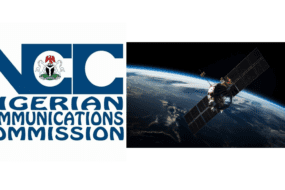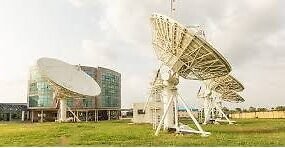Amazon has officially joined the satellite internet race. On Wednesday, the tech giant launched its first set of operational Project Kuiper satellites into space. This move shows Amazon’s bold step to challenge SpaceX’s Starlink in the fast-growing global broadband market.
Amazon launched 27 internet satellites into low Earth orbit (LEO) using a United Launch Alliance (ULA) Atlas V rocket. The rocket lifted off from Cape Canaveral Space Force Station in Florida at 7:00 p.m. EDT.
This mission, named “KA-01” (Kuiper Atlas 1), placed the satellites about 280 miles above Earth. These satellites will orbit at speeds of 17,000 mph, circling the planet every 90 minutes.
“Our main goal with this launch is to safely deploy the satellites. They must move independently and communicate with our ground team,” Amazon said in a statement.
Project Kuiper Satellites Aims to Deliver Global Internet Access
Amazon began planning Project Kuiper more than ten years ago. The project’s goal is to launch over 3,200 satellites to deliver high-speed internet worldwide, especially in underserved areas.
In October 2023, Amazon tested two prototype satellites—KuiperSat-1 and KuiperSat-2—which performed well. These tests helped pave the way for this first full deployment.
Amazon has already booked 80 satellite launch missions from ULA, Arianespace, and Blue Origin. ULA alone will handle 46 of those launches, including seven more Atlas V rockets and 38 Vulcan Centaur rockets.
Kuiper Satellites Will Provide Fast, Affordable Internet
The Kuiper satellites will offer speeds up to 100 Mbps using compact user terminals. These include a small square antenna Amazon revealed in 2023.
Industry experts see this launch as a key moment for Amazon. However, some question if Amazon is too late since SpaceX has already launched over 7,000 Starlink satellites.
Even so, Amazon believes its technology and global reach will help it compete. The company plans to begin offering commercial services in late 2025.
Geopolitical Issues Could Affect Amazon’s Space Goals
On the same day as the launch, Bloomberg reported that Amazon canceled orders from China and other Asian countries. This decision likely came after new tariffs from both the U.S. and China. These tensions could slow down Project Kuiper’s rollout due to supply chain disruptions.
Despite these challenges, Amazon remains focused on building its satellite internet system.
ULA Gains Momentum in the Launch Industry
ULA, Amazon’s launch partner, played a key role in this mission. After receiving approval to launch national security missions in March 2025, ULA plans 12 launches this year. It expects to double that number in 2026.
The Atlas V rocket performed well in this mission, while ULA’s next-gen Vulcan Centaur rocket is set to launch later in 2025 after earlier delays.
As Amazon monitors its newly launched satellites, the company moves closer to offering internet services across the globe. The battle between Amazon’s Kuiper and Elon Musk’s Starlink has officially begun.







No Comments